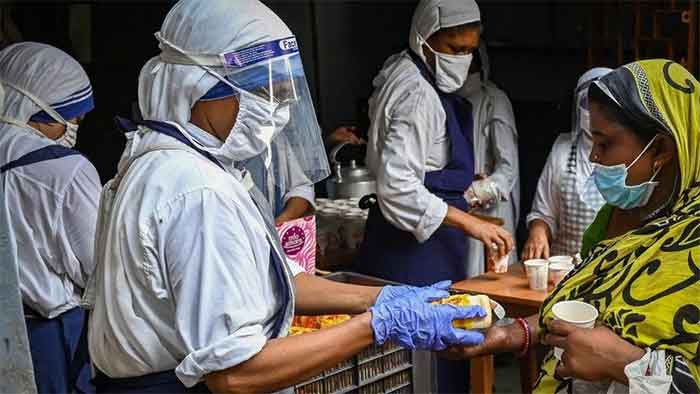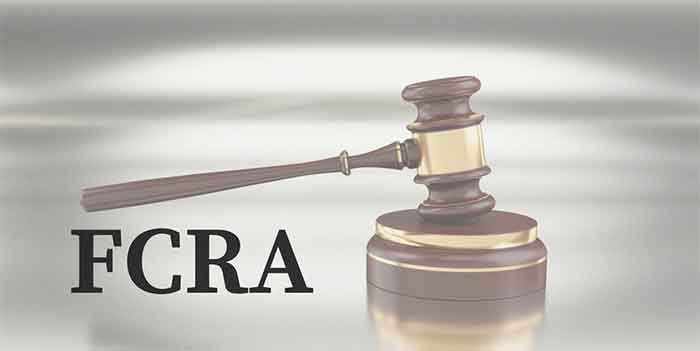
As the New Year began, I woke up to the news that the FCRA of hundreds of organisations who had applied for the renewal of their permission to receive Foreign funding had been denied. In the list was the well-regarded agency Oxfam, the Missionaries of Charity founded by Mother Teresa and a chain of small rural hospitals in North and Central India where I myself worked briefly. As I write, the permission has been now granted to my former organisation as also to the Missionaries of Charity but not to Oxfam and possibly many hundred other organisations which the media has not talked about.
India’s vibrant civil society, particularly the NGO sector, has for several years been seen as a threat to successive Governments and other vested interests. Since 2014 however, the writing was, time and again on the wall. Today, NGOs and civil society leaders are intimated and threatened; attacked, and even killed. The only apparent fault is that these groups and individuals have been very zealous in their commitment to the poor, the excluded, and the vulnerable in society; they have been vocal and visible in speaking truth to power! Standing up for truth and justice and for the rights and freedoms of all, as guaranteed by the Constitution, seems to be an absolute ‘NO’ where an authoritarian regime is concerned. FCRA, originally drawn with an intent to prevent foreign influence in politics, is now being used as a weapon against civil society organisations. Organisations and individuals who work to contest or debate government policies have been constantly threatened with the cancellation of their FCRA.
In the conventional politics that we are in now, civil society is dead. There is no longer a civil society left, except maybe a godi civil civil society. Ajit Doval, National Security Adviser, addressing the IPS probationers passing out of the National Police Academy, Hyderabad, recently identified ‘civil society as the new enemy the people of India and the police had to fight to retain the country’s unity and integrity. Doval told trainee police officers that civil society was the “fourth frontier of war”. An adversary may find conventional warfare expensive and inefficient. “But it is the civil society that can be subverted, subsumed, divided, manipulated to hurt the interests of a nation,’ he warned, reminding his police audience: “You are there to see they stand fully protected.” The duty list of the police just got longer with their role, not just crime control but also to identify supposedly subversive NGOs and other civil society players and suppress them. The NGO sector is sought to be sorted out into ‘good NGOs’, and the ‘black sheep, which are to be eliminated.
The epithet ‘anti-national’ is commonly hurled at so many critics of the government that some of India’s brightest and bravest minds are now anti-nationals. Public intellectuals, writers, journalists, activists, and conscientious objectors to the proliferation of hate and divisiveness based on religious identity are all there. It is a most disconcerting thought that a nation beset with many problems seeks to put them on the shelf if not worse instead of benefitting from their insights and expertise. What can members of civil society expect to face in this new type of warfare?
The state and civil society enjoyed a very cooperative and constructive relationship during the Nehruvian period immediately after Independence, but the subsequent government of Indira Gandhi imposed significant restrictions and repression on civil society, most prominently during the emergency. Various successive governments, including the so-called secular and progressive Congress-led UPA government, while unanimous in their condemnation of the Emergency era as such have thought it fit to retain the FCRA and others such as an instrument and in fact, make them more stringent to continue keeping civil society on a tight leash. For instance, The UPA government while on the one hand promoted state civil society relationships through the formation of National Advisory Council and enacted rights-based legislation to advance the interests of the poor and marginalised communities; on the other hand, it enacted the new FCRA in 2010 by replacing the 1976 Act to tighten its control over politicised elements within civil society that were seen as obstructing the government’s economic liberalisation policies.
The current government of course has been heavily committed to those very same policies. Soon after coming into power for the second term, on March 10, 2020, the government amended the 2010 FCRA of the UPA government and introduced the severest restrictions yet on civil society. What this shows is that the present government is partly using instruments being made available to them by the previous Congress governments – which were secular in nature but were ambivalent in their stance towards civil society bodies who operated outside the domain of traditional charity and talked of a “ Rights-based Approach” and in terms of identifying duty bearers and holding them accountable. Over time, the space for autonomous civil society organisations, especially those working on human rights, environment and climate, indigenous rights, workers’ rights, and minority rights, is shrinking.
The Corporate Social Responsibility law on civil society and philanthropy has been rather interesting. Although the law has managed to reel in over double the absolute volume of corporate philanthropy, it is designed to prioritise ‘short-term, easy to measure, employee pleasing programs’, over long-term complex issues that plague the country. The law has also resulted in the corporate sector repositioned as the main protagonist, leaving the NGOs side-lined as mere implementing agencies, eliminating thinkers and think tanks.
Civil society organisations have a key role to play in the overall developmental landscape of any country, especially so in countries that face critical challenges relating to poverty, healthcare, education, and other indicators of development. Playing a complementary role to the state, while diverging from markets, civil society organisations (CSOs) in India have extensive grassroots networks, which work to disseminate information, and provide goods and services related to social welfare. By eliminating or curtailing the freedoms of those elements of civil society which have the ability and wherewithal to identify structural problems, identify solutions and bring in the resources to implement those solutions and retaining only lapdog entities “ godi NGOs” so to speak, another mortal blow is being stuck.
Dr Shantanu Dutta , a former Air Force doctor is now serving in the NGO sector for the last few decades.











































